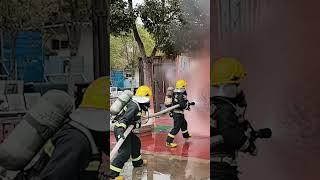Комментарии:

Thank you great clip on planes.
Ответить
Good video Graham. Could you move the mic to the top of the apron please. It would be easier to hear you. Thanks
Ответить
Enjoyed this one for sure. I have no trouble hearing you.
Ответить
Thanks for the tip on deepening the depth of cut by tapping the front of the plane. Every other plane video I have seen was always striking the iron.
Ответить
Technically speaking flatness of a sole isn't a guarantee for a flatness/straightness of a piece. Ends of a piece tend to get more material removed, so too much planing or jointing without checking almost guarantees that the piece will be high in the middle.
Ответить
Interesting.
I have a few wooden planes made in the late Victorian period (UK).
Henry Bessemer’s blast furnace revolutionised steel production, but it was difficult to control exact constituents of steel. A smaller, more controlled method of producing small amounts of steel was developed - the Siemens-Martin open hearth furnace method. The latter was especially suited to machine tools and plane irons.
I good quality, late Victorian plane (sometimes early 20th century) iron usually has the symbol for an open hearth, an inverted ‘U’, stamped on it, often the maker’s name or logo is in this shape.

Thanks for sharing Graham. Your knowledge and "know how" are a treasure to us!
Ответить
Love my old wooden planes. Just something very satisfying in how a wooden plane glides across the work.
Ответить
Looking forward to the video on jigs, thanks!
Ответить
Between these videos and your books, you are sharing information with us that we aren’t going to get anywhere else. I can’t thank you enough, sir!
PS I just watched the tango video. You’re a man of many secrets! 😉

💯💯💯💯💯💯💯💯💯💯💯💯👏👏👏👏👏👏👏👏👏👏👏👏
Ответить
Another great video Graham. As a proud resident of Ayr in Scotland I feel I must point out that your dovetail plane is by Stewart Spiers of Ayr as can be seen on the lever cap at 16.29. I believe that Spiers did make planes for Mathieson’s although Spiers marketing said if their name wasn’t on it, they didn’t make it. Spiers went bust in the 1920’s or early 30’s one of their last efforts being a very poor imitation of a Stanley Bailey plane. Mathiesons lasted a bit longer into the post war period. The dovetailed planes are wonderful pieces of work and great to use. Thanks again for the videos and the books.
Ответить
Really good presentation on planes. I don't have many wooden planes but I do have several metal planes. I thought I knew a lot about planes but you brought some great insight on all types.
Ответить
I’m beyond excited to spend five days with you at MASW this summer.
Ответить
thanks
Ответить
Always a pleasure to view and listen to your presentations Graham thank you for sharing your expertise; it makes owning my modest collection of handplanes more enjoyable.
Ответить
Another Amazing Video! Thank you. 🇦🇺👴🏻
Ответить
Graham - these are excellent videos. Thanks for sharing your knowledge. Can we get a shop tour video?
Ответить
I'd love to see you talk about the stanley "bedrock" line, which seems to be what the lie-nielsons are based on. As far as the adjustable frog, my little brain can't make sense of them. Because the bed of the frog is on an angle, the further forward you adjust them it forces the blade out, making for a deeper cut. By the time you retract the blade to compensate the mouth effectively goes back to being open again. I'm clearly missing something.
Ответить
I found a wooden coffin shaped plane with a metal sole earlier. Special purpose or just unusual?
Ответить
The "Plane I must have" is usually the one I've just spotted in a junk shop or car-boot sale...! In practice I normally have a scrub plane, plus 2-3 each of jack, jointer and smoother on my bench, set to different depths of cut, so I can just switch between them rather than constantly setting and resetting the iron. Feels extravagant - but I didn't pay more than ten quid for any of them and they each have their own special feel.
Ответить
Thank you Sir.🎉
Ответить
Hi Graham, love watching all you videos, very informative. One question. I have some old wooden planes that I have restored, & they work great. How do you set or lock in the iron? I usually tap on the wooden wedge to set it, then set the the depth by hitting the front or back of the plane. Is this ok to hit the wooden wedge or do I need to even do this?
Ответить
thank you
Ответить
Thankyou Graham Blackburn, I love watching your videos. on my wood working journey from nothing to full blown electricity hater i come to view metal planes as big business, a scheme that eventually took the light away from the skill of wood workers making their own tools within the community, shout out to Stavros Gakos who makes his own wood planes and there's a book by John M Whelan on how to do so(free pdf online.) We shouldn't be hunting down old planes but rather be able to craft our own to the needs of each shop and sometimes even piece. the major complaint is time, but it doesn't seem to take much time at all for a skilled craftsmen. where we concern with time we forgo skill and knowledge. part of the dumbing down of America with the racquet of industrialization , slop the hog mentality was instilled in Westerners. I despise this, and point the blame to big business where scalability and greed devalued skilled journeymen and valuable traditions based not on survival or the opportunity cost of consumerism. not intending to take away from the education this video holds but i hope that new and fellow wood workers may have more faith and understanding that they can make a really nice wooden bench planes that work just as good as a spending hundreds of dollars( unless they spent no time making that money to each their own.)
Ответить
Ordered one of your books. RWB ❤🎉f
Ответить
Hi Graham, I cant tell you how good your videos are. They are so informative. Thank you so much for everything you do. Will you be doing any videos in the future of projects you've worked on?
Ответить
I was surprised to learn you are based in Santa Cruz. I'm in San Juan Bautista.
Ответить
Hello, been watching your videos for a while. Got some helpful tips. I have been give 3 moulding planes but they all have several woodworm holes. Would it be safe to use them without getting wordworm in my other planes?
Ответить
Thanks for the information, very helpful. I enjoyed your class this past weekend.
Ответить
It’s plane to see from your background that you are a real collector!
Ответить
That was exceedingly informative!
Ответить
So could a person theoretically build a plane from wood for smoothing, but use a new modern steel?
Ответить
Just bought my first wooden plane and it’s a Mathieson 17” and the iron is excellent, the wedge sound, the tote is a coarse replacement handmade jobbie and for the life of me, I couldn’t figure out why the rear had been clearly and repeatedly bashed. Thankyou Graham and I look forward to getting your book.
Ответить
i have a German wooden plane that has a metal strike button at it's back. Previously, before learnign about planes, I never knew why it was there
Ответить
I'm working my way through your videos and have learned a lot even though I've been plying this glorious hobby for nearly 20 years. I plan to spread the word, but especially to beginning woodworkers. One request: When you introduce a new tool or name or process, could you spell it out on your video. My hearing is not what it used to be and the auto-generated subtitles often don't get these things right. Thanks, Jeff
Ответить
This video was one of first videos from you which l saw. At first l read "75 planes you must have". And l thouyght "Whoa, that's alot planes!"
Ответить


























